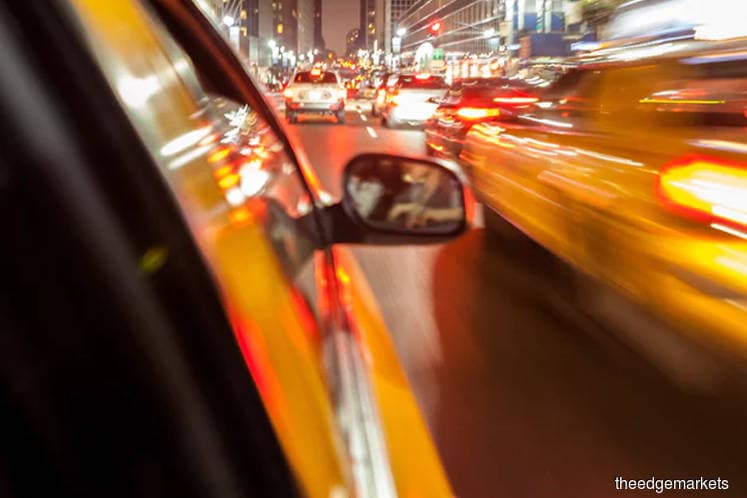
This article first appeared in The Edge Financial Daily on August 1, 2018
KUALA LUMPUR: More voices have weighed in on Prime Minister Tun Dr Mahathir Mohamad’s plan to restrict the import of foreign cars and start a third national car, and the tone was mostly negative.
Yesterday, the Institute for Democracy and Economic Affairs (IDEAS) warned against protectionist measures in the auto sector.
“The government should be clear about its plan for automotive policy. Technical standards for imports to ensure passenger safety are welcome but other barriers to trade, including taxes and duties designed to protect Malaysia’s domestic industry, should be avoided,” IDEAS economist Adli Amirullah said in a statement.
He also challenged claims that Malaysia’s car industry is in an “infant” stage, pointing out that both Proton and Perodua have been in the market for at least 33 years and 24 years respectively.
On Dr Mahathir’s proposal for a third national car, Adli welcomed new players coming into the automotive industry if and only if the government itself stays away from the market.
“In principle, we should not prevent any market players from entering the industry if they have the capacity to do so. But the government needs to stay away from the market and should not involve itself directly or indirectly in the process of setting up a third national car.”
Instead, he argued that the government should focus on promoting competition.
“One of the ways is to reduce excise duties on imported cars to reduce prices and motivate local car manufacturers to produce better quality products,” he said.
Affin Hwang Investment Bank foresees the dynamics of the auto sector to change should the import of foreign cars into the country be restricted.
“We believe that the Malaysian automotive dynamics will change altogether if the curb on foreign car imports does materialise. Proton (DRB-Hicom Bhd) and Perodua (UMW Holdings Bhd and MBM Resources Bhd) will benefit from this restriction at the expense of foreign car brands like BMW (Sime Darby Bhd), Mazda (Bermaz Auto Bhd), Mercedez-Benz (Cycle & Carriage Bintang Bhd and Hap Seng Consolidated Bhd) and Nissan (Tan Chong Motor Holdings Bhd),” said Affin Hwang in a report yesterday.
It also added that local auto parts makers like APM Automotive Holdings Bhd and MBM Resources would indirectly benefit from higher local car production.
Similar to Affin Hwang, MIDF Research analyst Hafriz Hezry said in his report that if the move suggested involves outright restrictions even on well-localised completely knocked down models, it will have an impact on the industry, creating an uneven level playing field and stunt foreign investment growth in the sector.
“Such a move is akin to allowing national cars to solely drive sector growth in the future, which requires a much larger market than just domestic for volume competitiveness,” he said.
Both Affin Hwang and MIDF Research, however, noted that the National Automotive Policy (NAP) 2018 review had yet to be finalised and is still subject to further revision.
On Monday, the Malaysian Automotive Association (MAA) called the proposal to impose restrictions on the import of foreign vehicles to protect the interest of national carmakers, in particular Proton, as a move backwards for a country that is trying to ensure a conducive car industry.
“It (imposing restrictive measures) is a regressive move for the auto market. I do not think it is right for the government to put restrictions on carmakers, other than Proton, on cars being brought into the country,” MAA president Datuk Aishah Ahmad told the media after a 30-minute briefing with the five-man Council of Eminent Persons on Monday.
Dr Mahathir has said that foreign-made cars imported freely into the country, without any conditions imposed, have hurt local automakers such as Proton, which struggled to stay afloat in the face of intense competition.
He said in parliament on Monday that the government was in the midst of studying the new NAP, which could be tweaked to include restrictions on car imports by foreign manufacturers.
Auto stocks saw a mixed performance on Bursa Malaysia following the statement made by Dr Mahathir. Some of the decliners yesterday included Cycle & Carriage, Hap Seng Consolidated, Tan Chong Motor and DRB-Hicom.
Cycle & Carriage shares fell six sen or 3.06% to RM1.90, while Hap Seng Consolidated slipped one sen or 0.1% to RM9.80. Both companies are Mercedes-Benz dealers in Malaysia.
Tan Chong Motor closed three sen or 1.7% lower at RM1.73. It is the franchise holder and exclusive distributor of Nissan passenger and commercial vehicles as well as Renault vehicles in the country.
DRB-Hicom, which has a 50.1% stake in Proton, which is expected to be the main beneficiary of protectionism measures, was also affected. Its share price fell three sen or 1.33% to close at RM2.22. Other marques under DRB-Hicom include Honda, Isuzu and Mitsubishi.
Meanwhile, Sime Darby, which is the official distributor of BMW, MINI and Motorrad vehicles in Malaysia, closed unchanged at RM2.52. UMW Holdings, which distributes Toyota vehicles, was also unchanged at RM6. The group also has a stake in local carmaker Perodua, along with MBM Resources, which closed unchanged at RM2.40.
Bermaz Auto, which distributes Mazda vehicles and spare parts, bucked the trend, with its counter gaining one sen or 0.46% to RM2.18.